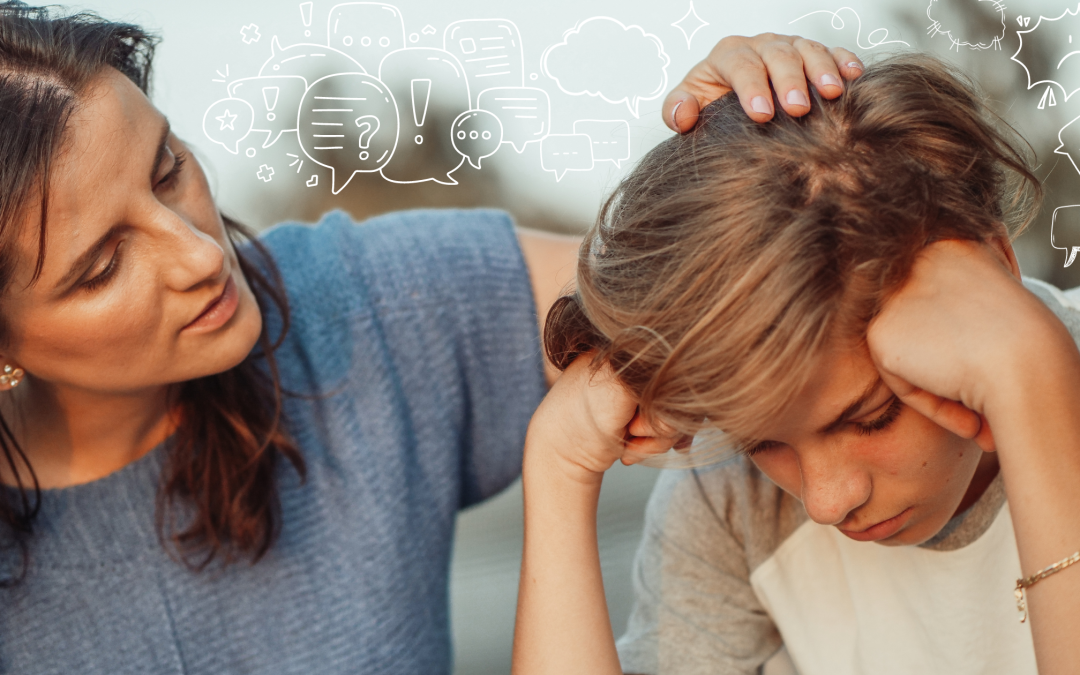For many, childhood is a precious time of innocence, boundless curiosity and exploration, and an innate sense of wonder. As children explore the world around them, their experiences create the foundation for self-worth and confidence.
Consistent love, acceptance, and positive reinforcement from parents, caregivers, educators, and peers help children internalize the belief that they’re valuable and competent. Bullying, in its many destructive forms, erodes that self-worth and confidence, leaving in its wake children who begin to view themselves through a distorted lens.
Being bullied is a profoundly traumatic event that can leave lasting scars on a person’s psyche. It transcends mere conflict, embodying a relentless and pervasive attack on a person’s self-worth and security. Bullied individuals may undergo immense emotional distress, struggling with isolation, fear, and humiliation.
As a parent or guardian, it’s crucial to equip your child with the necessary tools and knowledge to navigate these challenges. Continue reading to explore how to talk with your kids about bullying, a conversation that’s essential in fostering resilience and promoting mental well-being.
Understanding Bullying
Before delving into how to talk with your child about bullying, it’s vital to understand what it encompasses. Bullying is repeated, unwanted, aggressive behavior that involves a real or perceived power imbalance. Contrary to the misguided belief that bullying is just kids being kids and a right of passage, it can be considered child abuse.
Bullying can manifest in various forms, including:
- Physical Bullying: Involving physical harm or intimidation.
- Verbal Bullying: Includes name-calling, teasing, or making derogatory remarks.
- Social Bullying: Involves spreading rumors or excluding children from groups.
- Cyberbullying: Bullying that occurs online, usually on social media platforms.
The Importance of Talking About Bullying
Discussing bullying with your child can help:
- Build Trust by encouraging your child to open up about their experiences.
- Promote Mental Well-Being by preventing the adverse effects of bullying on mental health.
- Develop Coping Strategies by assisting children in developing the emotional intelligence and resilience to cope with bullying.
Signs Your Child Might Be Involved in Bullying
Knowing what to look for can help you spot if your child is bullied or bullying others. Every child might express signs of bullying differently, but there are some common signs.
For Those Being Bullied:
- Unexplained injuries
- Lost belongings
- Changes in eating habits
- Declining grades
- Avoidance of school or social situations
For Bullies:
- Increased aggression
- Getting into physical or verbal fights
- Having friends who bully others
- Increasingly negative attitude toward peers
Preparing for the Conversation
Before initiating a conversation with your child about bullying, consider taking the following steps:
- Conduct Research: Educate yourself on the latest statistics and facts about bullying.
- Establish the Right Atmosphere: Choose a quiet, safe place free of distractions for the conversation.
- Be Patient and Open-Minded: Let your child express themselves without interruption or judgment. It’s not unusual for a child to be hesitant to discuss the topic.
Steps to Talk About Bullying
- Ask Questions and Listen
Start the conversation by asking your child open-ended questions about their experiences at school or other activities. For example, “How are kids treating each other at school?” or “ Have you seen any bullying at school?” Then, actively listen without judgment to what they say. Let them share details at their pace and make them feel comfortable confiding in you. - Express Empathy
Let your child know you understand how difficult bullying can be. Say things like, “I’m sorry you’re dealing with this. Bullying can be very hurtful. I want you to know I’m here for you.” Validate their feelings and reassure them that the bullying is not their fault. - Outline Expectations for Behavior
Make it clear that bullying of any kind is unacceptable. Explain how words and actions can impact others. Set expectations for how you want your child to act towards others and how to respond if they witness bullying. Highlight the importance of treating others with kindness and respect.
Develop Strategies for Handling Bullying
Work together to develop strategies for what to do if your child is being bullied. For example:
- Speak up assertively by saying “Please stop” or telling the bully their behavior is unacceptable.
- Seek help from a trusted adult like a teacher, counselor, or yourself.
- Stick with supportive friends who can help address the bullying.
- Avoid places where bullying happens.
- Build confidence through extracurricular activities.
Having a plan can empower your child to take action against bullying.
Follow Up Regularly
Continue to check in with your child about their experiences with bullying. Keep the lines of communication open and provide ongoing support.
By having open, non-judgmental conversations with your kids, you can help address bullying. Make it clear that you take this issue seriously and will help them. With your support, they can overcome bullying.
Help Us End Child Abuse and Neglect
Taking the time to talk with your child about bullying fosters a safe and nurturing environment where they can thrive. Whether your child is the victim, the bully, or a witness, it’s vital to address the topic head-on.
If you or someone you know struggles with the repercussions of bullying or other childhood abuse, EndCAN is always here for you with valuable resources. You don’t have to navigate these challenges alone; you can heal with the right support and care.
Don’t suffer in silence. Breaking the silence is one way we can stop child abuse. When you’re ready, share your story so other adult survivors of child abuse know they’re not alone. Your generous contribution can also help us provide support and help adult survivors of child abuse heal.


Recent Comments